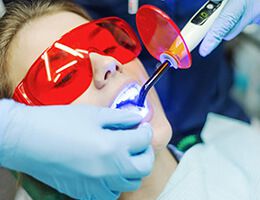Periodontal disease is an infection of the gums and the surrounding tender tissues caused by the accumulation of bacteria on the teeth in the form of plaque. The bacteria infect the roots of the teeth and destroy them, leading to tooth loss in the long run.
There are four stages in periodontal disease, among which gingivitis and advanced periodontitis are the most common. If left untreated for long, it causes several other conditions as well.
The plaque hardens to form a mineral deposit called tartar on the surface of the teeth, creating gaps between the gum and the teeth.
Smokers, patients having type 2 diabetes, and women with hormonal changes are more susceptible to the disease.
Several medications reduce the flow of saliva in the mouth resulting in dry gums and thus periodontal disease.
A healthy mouth is equal to a healthy heart. In advanced periodontitis, bacteria spread below the gum line and grow in gum pockets. Due to the high penetrability of the bacteria into blood vessels, these bacteria release toxins that are carried by the blood vessels connecting your gums and other parts of the body. They get absorbed into the bloodstream and become accessible to the arteries of the heart.
The bacterias activate swelling in any part of the body and, as a result, cause damage to the major blood vessels, including those of the heart. The plaque calcifies to certain degrees on the arterial walls. The fibrous cap - a connective tissue, becomes thin and ruptures, leading to activation of the blood's clotting system. A very little blood is supplied to the heart and brain. In the long run, this becomes chronic and could result in stroke and heart attacks.
After diagnosing the severity of the infection, your dentist will give you an oral hygiene guideline. In a professional cleaning session, the plaque is removed from the reachable areas of the teeth and the gum sockets. A reassessment is done after a few weeks to check for the depth of the pockets and bleeding from gums. In extreme cases, the hardened plaque is removed surgically from the periodontal pockets. Antibiotics are suggested when physical removal of plaque is not effective.
Please reach out to Persimmon Dental Care in Dublin, CA, to have a consultation with our dentists. Please call us at (925) 999-8282 or schedule an online consultation, and we’ll guide you further.













MON - FRI 9:00 am - 6:00 pm
SAT - SUN Closed